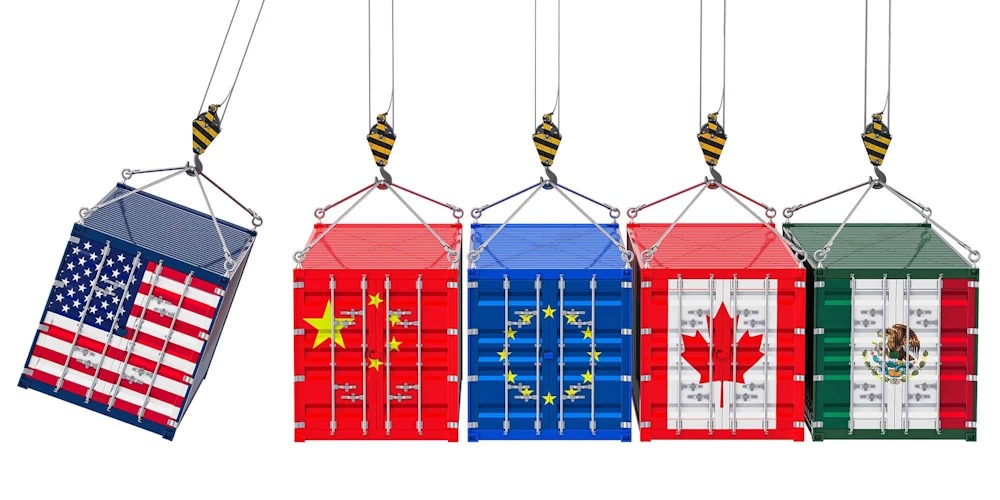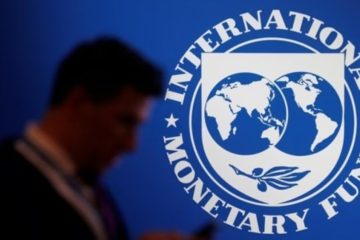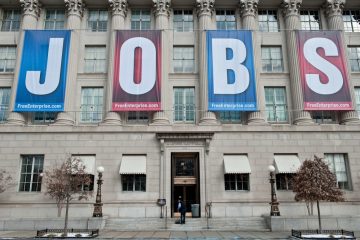World leaders are exhibiting caution in their approach to the ongoing trade war

Economists suggest that the key to avoiding a trade war is straightforward: refrain from retaliating. Currently, the strategy seems to be yielding positive results globally, as President Trump has decided to suspend several of his most significant tariffs for a duration of three months. China has taken a bold stance and is now engaged in a full-scale trade war with the United States.
As nations engage in negotiations with Trump, they face a critical decision: to maintain their current strategy or to consider leveraging retaliation as a bargaining tool. Retaliation poses significant risks, inflicting damage not only on the U.S. economy but also on the economies of the countries engaging in such actions. The European Union has thus far held back from retaliating against Trump’s tariffs; however, it has prepared a detailed list of specific products to target in response to the U.S. tariffs on steel and aluminum. The compilation features a diverse selection of curated products, such as chewing gum, peanut butter, motorcycles, boats, and garden umbrellas. The tariffs remain suspended for now; however, the bloc has indicated that they may be implemented alongside additional retaliatory actions should negotiations falter. Canada has established a tailored list of American products, and in contrast to the EU, has implemented certain retaliatory tariffs. The imposition of levies on over $40 billion in U.S. goods and vehicle imports has been enacted due to non-compliance with the U.S.-Mexico-Canada Agreement, commonly referred to as USMCA.
Some national leaders are feeling the urge to respond with retaliation. Recent polls indicate that a significant majority of Europeans are in favor of implementing countermeasures against the United States. Raising tariffs on other countries is largely viewed by economists as a detrimental move. Such tariffs increase prices for consumers, distort investment patterns, and diminish the competitiveness of manufacturers reliant on American inputs. “Economic theory on retaliation is unequivocal: Retaliation invariably results in welfare loss, and the sole scenario in which it is advisable is when there is a strong belief that such retaliation will compel the initiating party to relent,” stated Jun Du, an economist at Aston Business School in the U.K.
Trump has issued a cautionary statement, indicating that nations that choose to retaliate may face additional trade actions from the United States. Last week, a notable selloff in the U.S. Treasurys market caught attention, as it escalated the government’s financing costs and, crucially, sparked concerns regarding the nation’s credibility as a borrower. The absence of any indication that Trump will relent or negotiate a deal to reduce trade barriers on either side is likely to intensify calls for retaliation, heightening the risk of a damaging trade war.
Last week, China announced a significant increase in its tariff on U.S. goods to 125%, a move in direct response to the Trump administration’s heightened trade tensions. However, officials indicated that further increases are unlikely, as the current tariff level already renders American products prohibitively expensive for consumers in the Chinese market. The United Kingdom has announced that it currently has no intentions of retaliation, opting instead to prioritize the acceleration of trade discussions with India and other nations. British Prime Minister Keir Starmer stated, “No business sector affected by these tariffs is advocating for a full-scale retaliation that could lead to a trade war.”
Officials have indicated that a more assertive response from Europe may focus on U.S. services. An EU-wide tax on the digital advertising revenues of American tech companies may be on the horizon. Economists and trade lawyers suggest that alternative strategies may involve imposing fees on financial services transactions or implementing restrictions on U.S. companies’ access to the EU market. Pursuing actions against services may adversely impact the U.S., which currently enjoys a surplus in services trade with the bloc, potentially causing greater harm than to the EU. However, it would significantly affect Ireland, where numerous American tech firms are based.
Du and a colleague from the Aston Business School conducted a model analyzing the economic repercussions of an intensifying trade war, revealing that each cycle of retaliation results in negative outcomes for all parties involved. Currently, with global tariffs set at 10% and increased levies on China, certain sectors such as automobiles are projected to result in a long-term per capita income in the U.S. that is 1.96% lower than it would be in the absence of these tariffs. The potential for reciprocal actions by other nations could escalate the impact on the U.S. economy, resulting in a projected loss of 2.54% in income, with further implications for other countries as well. The recent exceptions for smartphones and other electronic devices are not accounted for in those estimates.
The European Commission has conducted another econometric model analysis, focusing on the circumstances surrounding the announcement of Trump’s reciprocal tariffs on April 2. The findings align closely with previous assessments regarding the effects of retaliation. The projected impact on U.S. economic output is estimated to be approximately 0.8% for this year, in contrast to a mere 0.2% for the European Union. Retaliatory measures could have detrimental effects for both parties, with projections indicating a potential 2% decline in U.S. economic growth and a 0.5% decrease for the European Union in the current year.
The imposition of tariffs by the U.S. on nearly all other nations is projected to result in significant economic repercussions, with the country facing the most substantial impact, alongside Canada and Mexico, according to various models. “For other countries, costs are diversified; for America, they are concentrated,” stated Moritz Schularick, president of the Kiel Institute, a Berlin-based think tank. According to Ignacio García Bercero, a former EU trade official, retaliation can play a crucial role in achieving political goals, as it demonstrates a nation’s readiness to protect its interests. However, he indicated that this does not automatically imply that trading partners ought to reciprocate in a similar manner. “The decision by the U.S. to impose significant economic costs on itself does not imply that other nations should follow suit,” he stated.
The European Union has indicated that any retaliatory actions it considers will not aim to replicate U.S. tariffs in a tit-for-tat manner. Instead, these measures will be strategically designed to maximize their impact on the United States while minimizing any adverse effects on the EU itself. Xavier Timbeau, an economist at OFCE, a Paris-based state-funded economic observatory, stated that when a country opts to impose tariffs solely on specific products for which local substitutes exist, the dynamics of retaliation are altered. “It resembles a boxing match: avoiding getting hit is crucial,” Timbeau stated. “When a nation imposes tariffs that serve its interests, it is essential to respond by implementing tariffs that align with your own strategic advantages.”









